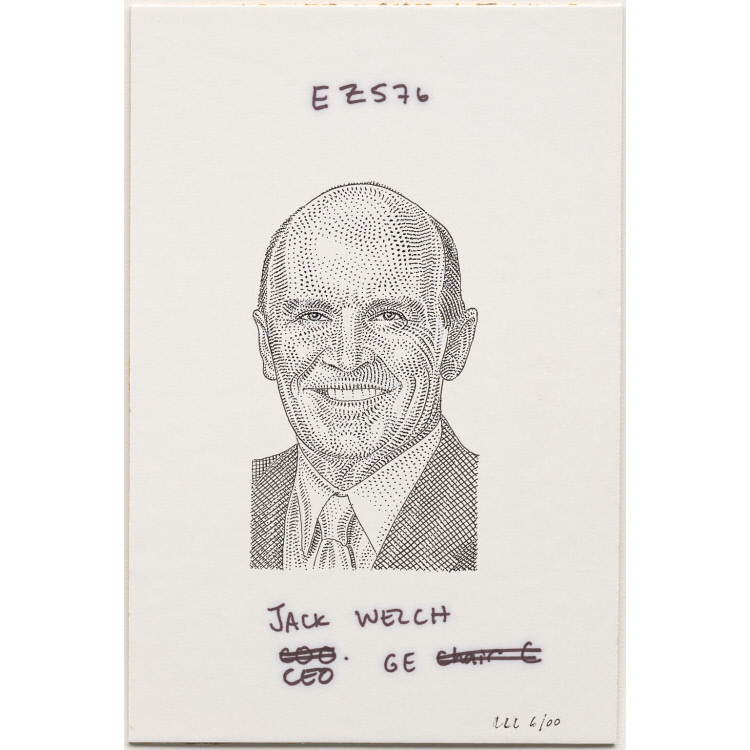1M
The New York Times’ remembrance of one million Americans dead from COVID is a masterpiece of the pedestrian. Thirteen families’ final text messages with their loved ones. Lots of swapping medical details, reports on the new backyard fence going in and how the garden is doing, and a grandma asking her son to cold-cock their anti-vax neighbors and then “stomp on their nuts for good measure.”
No miracles, no romance. Just loss. Read more.
Turbulence Followed by Terror
Adam Gopnik uses the book review section to ponder tyranny and its origins.
“If the run of dictators is approximately the same as it has always been, we might conclude that our strongman problem is not traceable to a specific ailment but to a constant, bellows-like oscillation of societies that move toward openness and then close down. In one standard account, the successes of a liberal society — taking in alien influences, expanding individual rights, and profiting from pluralism — spur a backlash among a threatened segment of the population (usually an odd coalition of underclass and overlord), who yearn for some phantasmal, völkisch, organic community. A tyrant rises to fulfill that need.
Another account says that, in times of violent social change, the most militant of factions tend to triumph, and then the leader of the faction becomes the dictator of the land. Something like this happened twice during the French Revolution, first with the rise of the Jacobins and then with Napoleon’s coup d’état; the same pattern occurred with the Communist revolutions in Russia and in China. Though it most often makes a left turn, the process can turn right, as with Franco, in Spain. In either case, a period of turbulence is followed by a period of terror.
But it’s also possible that dictators represent an ever-changing category, shaped by local specifics. In the twenty-first century, the story would be that, say, globalization produces inequality (or that immigration produces panic), and that the resulting anxiety intersects with the siloing of social media. This account has continuities with the old ones, but insists that the particulars of a moment matter, and create authoritarian leaders of a specific mold. We find ourselves using the same names — dictator, tyranny, fascism — to designate very different people and processes.
Whichever position you adopt comes with optimistic and pessimistic takeaways. If you conclude that the situation was ever thus, you will believe that it will likely be righted at last, but also that the cycle will never end. If you believe that this time is different, you can search for a durable fix — a more equitable economy, a gentler form of globalization, the tempered restoration of national identity — while knowing that the fix may not fix it. The unexciting truth is probably that authoritarians are a permanent feature of human existence, and that an array of circumstances allows them to flourish. Cancers all have a family resemblance, and each has a specific pathology.” Read more.
Neutron Jack
An interesting corrective on the decades’ worth of garlands that crowned GE CEO and UIUC alumnus Jack Welch, taken from a new biography by reporter David Gelles.
“[H]e exerted a powerful and lasting influence on American business, informing how workers are treated, how shareholders are rewarded and how CEOs comport themselves in an increasingly divisive age. When Donald J. Trump is elected president, when Jeff Bezos argues about inflation with the White House, when Elon Musk negotiates his $44 billion deal to buy Twitter by using the poop emoji — this is the world that Jack Welch helped create…
And in the decades since Mr. Welch assumed power, the economy at large has come to resemble his skewed priorities. Wages stagnated and jobs moved overseas. CEO pay went stratospheric and buybacks and dividends boomed. Factories closed and companies found ways to pay fewer taxes.
Beyond his enduring influence on the economy, Mr. Welch also redefined what it meant to be a boss, personifying an aggressive, materialistic style of management that endures to this day…
The finance division became GE’s center of gravity, ultimately accounting for 40 percent of its revenue and 60 percent of its profit. With so much money coursing through the finance division, Mr. Welch used it to his advantage, shifting zeros throughout a sprawling international web of subsidiaries, and extracting whatever he needed to meet or beat analysts’ estimates for nearly 80 quarters in a row, an unprecedented run. It was what one influential analyst called ‘earnings on demand.’
Mr. Welch was never called to account for this questionable financial engineering while he was CEO. But in 2009, GE announced that it had settled sweeping accounting fraud charges with the Securities and Exchange Commission that pointed to decades of impropriety.
GE had been overstating profits in a bid to jack up its share price in the years after Mr. Welch retired, using myriad well-honed tactics to fudge the numbers, the SEC said.
This wasn’t a one-off anomaly, as the SEC made clear. Distorting earnings was a well established practice inside the company.” Read more.

Heavy Rotation
“The loneliness never left me / I always took it with me / But I can put it down in the pleasure of your company // And there will be no grand choirs to sing / No chorus will come in / And no ballad will be written / It will be entirely forgotten // And if tomorrow it’s all over / At least we had it for a moment / Oh Darling, things seem so unstable / But for a moment we were able to be still”







